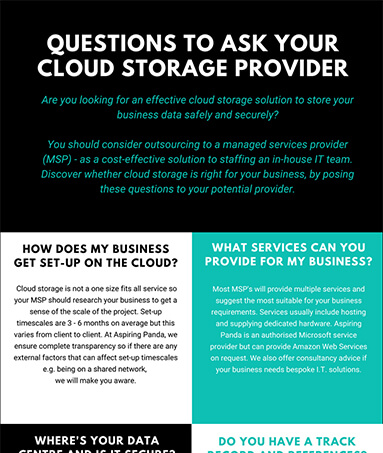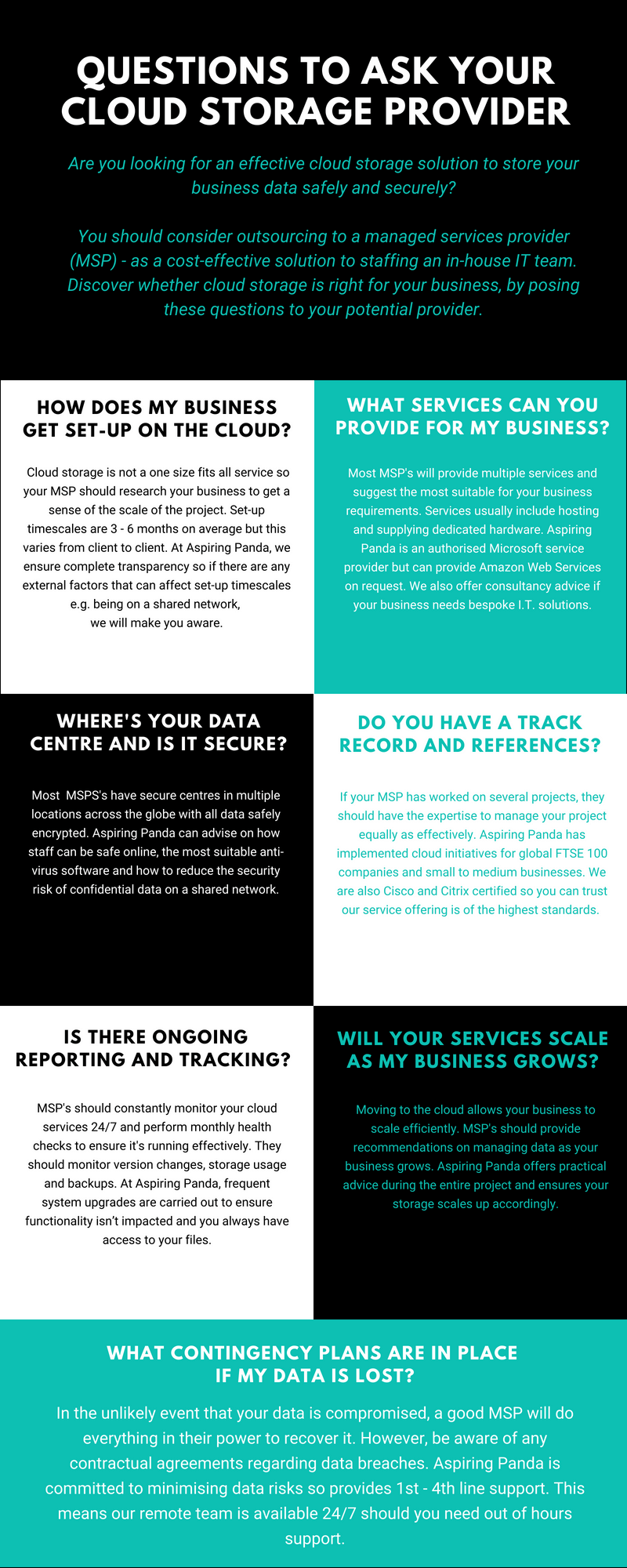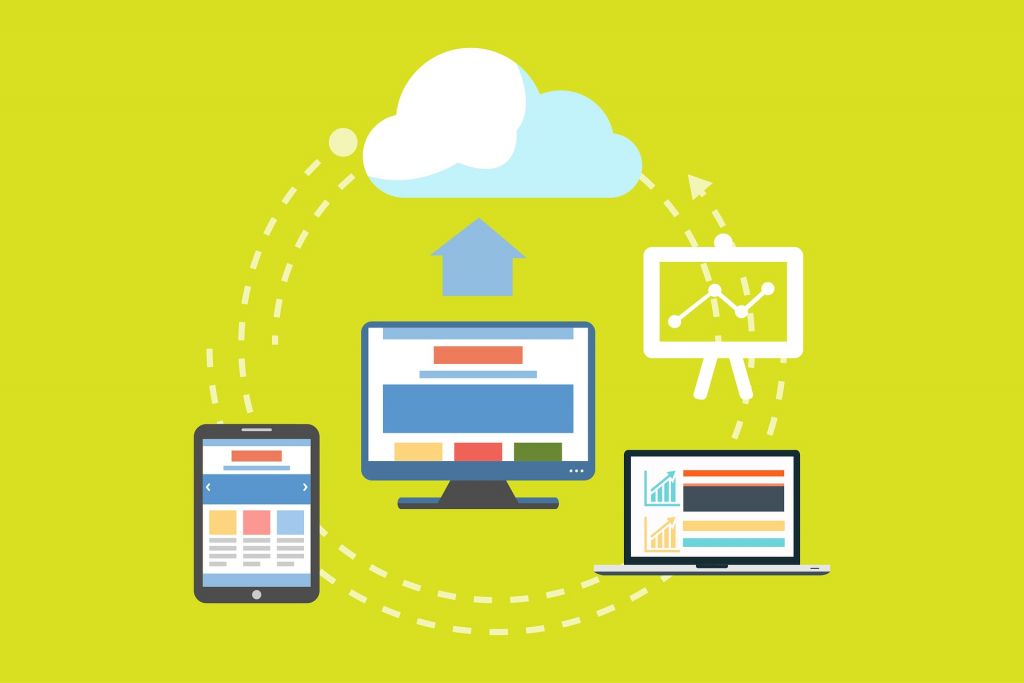As businesses become increasingly more reliant on cloud services during the pandemic, Aspiring Panda shares their commentary on how businesses can work safely in the cloud and predictions they made around the necessity of cloud migration made long before the pandemic hit.
With global workforces now forced to adapt to a ‘new normal’, companies spanning multiple industries have had to re-evaluate their working practices to ensure staff can work remotely safely and securely. This has naturally seen a huge increase in cloud usage as millions work from home and expect to continue doing so. Indeed, some of the world’s leading tech brands have committed to more flexible remote working indefinitely including Shopify, Twitter and Facebook, with other well-known brands expecting to follow suit shortly.
As cloud computing becomes more crucial than ever, tech giant Microsoft has seen huge spikes in sales as a result of the ongoing pandemic. The health crisis has spurred the use of Microsoft’s services and helped drive a 59% jump in sales in the Azure cloud business. With 95% of Fortune 500 businesses using Azure, over $1bn has already been invested annually to protect Azure customers from cyberthreats. Analysts say the lasting impact for cloud providers like Microsoft is positive for the most part. Leading analyst Daniel Ives expects $1 trillion to be spent on cloud computing over the coming decade. Many companies expect to massively increase their spend on cloud services to maintain business continuity during the pandemic. Whilst Microsoft and Amazon Web Services command the biggest cloud computing market share, new players to the sector like Oracle are already vying for a slice of the pie, indicating the lucrative opportunities available to cloud providers.
Whilst Aspiring Panda Managing Director, Manjeet Panesar certainly couldn’t have predicted the pandemic, he has been extolling the virtues of cloud services for years and admits current circumstances have forced businesses out of complacency.
“We have always actively encouraged all our clients to migrate to the cloud as we rightly predicted physical servers will gradually diminish in 2020 as clients move towards cloud services. The majority of large businesses have huge data centres which can be costly and time-consuming to maintain. Savvy IT leaders should already have cloud contingency in place for emergency situations like the pandemic and use this as a wake-up call to ensure processes are in place so they are ready for any future crisis. Swift migration is particularly essential for businesses like accountants and lawyers; anyone dealing with confidential data in terms of keeping records, physical files and analysing and sharing records.”
So what are key benefits for businesses using the cloud?
Cloud computing platforms, such as Azure, tend to be less expensive and more secure, reliable and flexible than on-premises servers. With the cloud, equipment downtime due to maintenance, theft or damage is almost non-existent. Also, you typically only pay for the services you use, which provides a level of convenience and cost-control that’s almost impossible to achieve with on-site infrastructure.
Since the pandemic has forced employees to work remotely, there is increased demand for effective and efficient security and protection protocols. In recent weeks there have been several cyber-attacks made on businesses but with the cloud, your encrypted data will benefit from constant monitoring of version changes, automated backups and storage usage. This means in the unlikely event of your data being compromised, you always have contingencies in place.
Cloud services are also available with flexible infrastructure giving you the ability to scale up or down automatically to ensure that optimum service is maintained. Flex servers are important for ecommerce websites that are particularly experiencing increased web traffic during the COVID-19 pandemic.
With Aspiring Panda providing cloud services to all industries from ecommerce and finance to agriculture, the latest report from SmartVault that cloud tech was proving vital to accountants was heartening. Statistics showed 62% of accountants surveyed for the report who felt they were responding to COVID-19 successfully, were more likely to be using cloud-based technology.
Nonetheless, with millions of us now accessing internal systems remotely, this has made businesses more vulnerable to cyberattacks with many already falling victim to cyber threats. EasyJet recently experienced a high profile hack with many other businesses reporting similar issues.
“Security is becoming more of a prime concern for major businesses so it’s important that whatever cloud platform you choose, all-around security comes as standard,” advises Manjeet.
“Ultimately, a robust approach is needed from IT leaders to ensure their organisations are benefiting from safe and secure cloud services, particularly if most of them plan to encourage remote working in the long term as a lasting result of the pandemic.”











